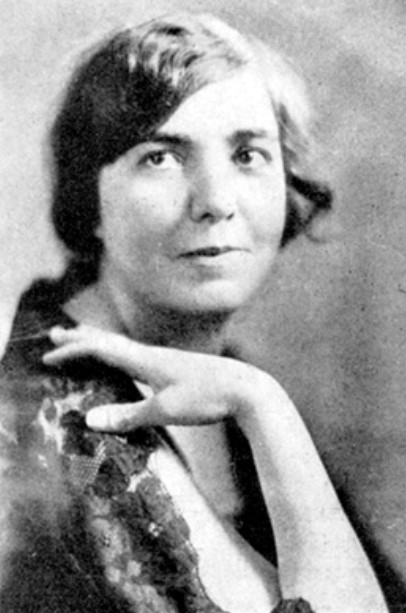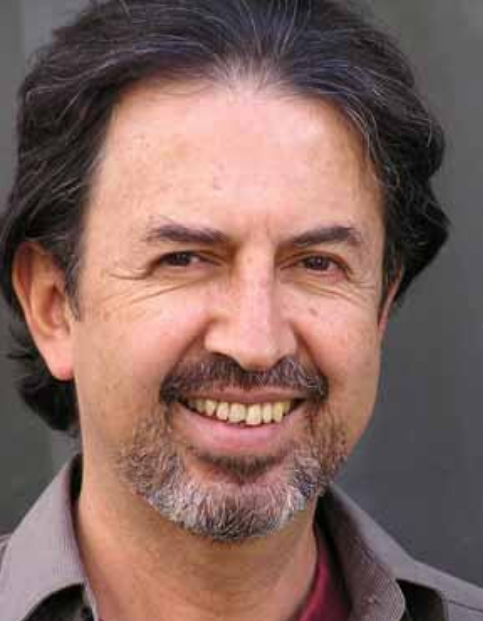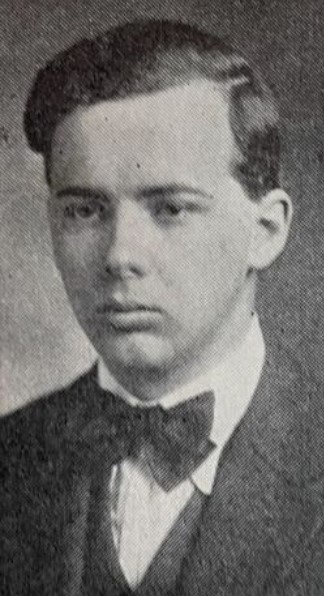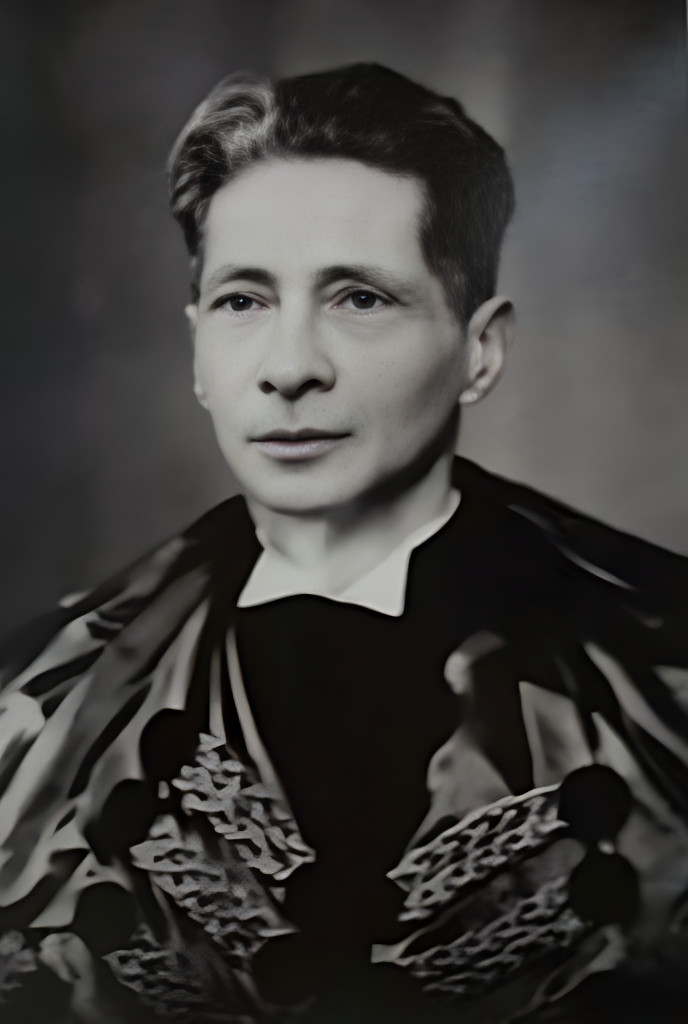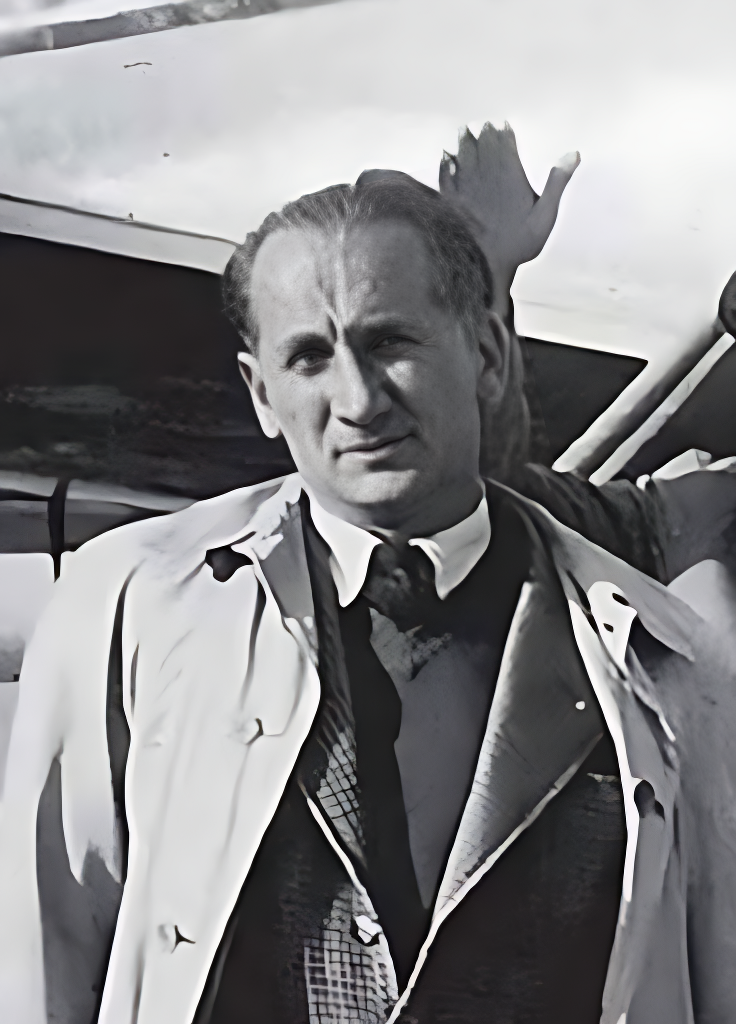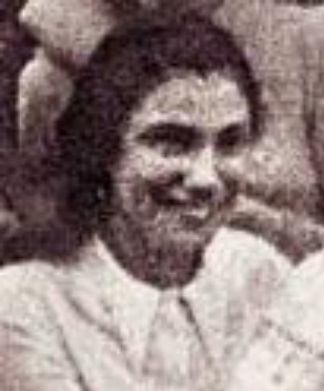Muna Lee (1895–1965) was an American poet, translator, and activist whose work significantly advanced Pan-American cultural exchange. Known for her lyrical poetry and commitment to women’s rights, Lee became a prominent translator of Latin American literature, notably introducing Ecuadorian poet Jorge Carrera Andrade to English-speaking audiences with her acclaimed translation of Secret Country (1946). Her marriage to Puerto Rican poet and later governor Luis Muñoz Marín drew her into Puerto Rican cultural life, where she also served as director of International Relations at the University of Puerto Rico. Later, as a specialist in inter-American cultural affairs for the U.S. State Department, she championed artistic exchange across the Americas. Lee’s legacy endures in her translations and her efforts to foster a unified cultural identity throughout the Western Hemisphere.
Continue reading “Muna Lee”Category: Translators
Ivan Večerina
Ivan Večerina (Sušak, December 3, 1906 – Unknown) was a Croatian translator renowned for translating Spanish literary works into Croatian. He significantly enriched Croatian literature with notable translations, including Zli duhovi, the Croatian rendition of Huairapamushcas by Ecuadorian author Jorge Icaza, Vrtlog (La Vorágine) by Colombian author José Eustasio Rivera, Trorogi šešir (El sombrero de tres picos) by Pedro Antonio de Alarcón, and Doña Perfecta by Benito Pérez Galdós.
Continue reading “Ivan Večerina”Alexis Naranjo
Alexis Naranjo Banda (Quito, 1947) is an Ecuadorian poet, university professor, art critic, and translator. He earned a Master’s degree in Linguistics from the University of Paris VIII and has published several notable poetry collections, including Profanaciones (1988; “Profanations”) and La piel del tiempo (1998; “The Skin of Time”), which won the Jorge Carrera Andrade National Prize. His work is known for its philosophical depth and rich language, influenced by both Latin American and Ecuadorian literary traditions. Naranjo’s poetry often explores themes of existence, spirituality, and the human condition.
Continue reading “Alexis Naranjo”Carlos Carbo Viteri
Carlos Carbo Viteri (April 13, 1865 – August 13, 1922) was a distinguished Ecuadorian poet, translator, congressman, and diplomat, renowned for his substantial contributions to his country’s literature and politics. Influenced by classical Greek and Latin literature, his romantic poetry captured the nuances of everyday life, earning him recognition and acclaim. His poignant poem “A Guayaquil,” composed for the centennial birth anniversary of Vicente Rocafuerte, notably secured him the second prize in a 1883 poetry contest. He also translated foreign works, such as Alphonse de Lamartine’s “El Poeta Moribundo,” into Spanish, making them accessible to a wider audience. In his political career, Carbo Viteri served actively as a congressman while passionately advocating for conservative principles. His service extended to several important positions including the Secretary of the Guayas Governorate and the Municipal Syndic of Guayaquil. Additionally, he represented Ecuador internationally as its Chargé d’Affaires in Chile. His impactful work in both the literary and political spheres has left an enduring imprint on Ecuador’s cultural and political history.
Continue reading “Carlos Carbo Viteri”Melanie Márquez Adams
Melanie Márquez Adams (Guayaquil, May 5, 1976) is an Ecuadorian American writer, editor, and translator. Among her published books are “Mariposas negras” (2017), a collection of stories, and “Querencia” (2020), an exploration of identity and finding one’s sense of belonging in a foreign land. As an editor, Márquez Adams has curated anthologies such as “Del sur al norte: Narrativa y poesía de autores andinos” (2016), which showcases the narratives and poetry of Andean authors, and “Ellas cuentan: Antología de Crime Fiction por latinoamericanas en EEUU” (2019), highlighting the crime fiction works by Latin American women in the United States. Márquez Adams has received accolades such as the Latino Book Award for her exceptional work as an editor. Her latest work, “Imaginar países” (2021), was a finalist for the 2022 Premio Paz de Poesía (Paz Poetry Prize).
Continue reading “Melanie Márquez Adams”Kimrey Anna Batts
Kimrey Anna Batts (1983) is an American translator known for her exceptional work in translating the poetry and fiction of contemporary Ecuadorian authors, including Santiago Vizcaíno and César Eduardo Carrión. Originally from rural East Tennessee, she pursued her studies in Anthropology and Latin American Studies at the University of Michigan. In 2006, she made the decision to move to Ecuador, where her passion for literature and language flourished, leading her to embark on a successful career as a professional translator. Kimrey pursued a Master’s degree in Literary Translation at the University Pompeu Fabra in Barcelona, further honing her skills and deepening her understanding of the craft. Her dedication and talent shine through in her published works, which have graced the pages of prestigious literary publications such as The Brooklyn Rail, Lunch Ticket, Bitter Oleander Review, Ezra, Cordite Poetry Review, Mantis, Asymptote, and Exchanges, among others. Currently, Kimrey resides in Mexico, continuing to contribute to the world of literary translation with her remarkable expertise and love for languages and literature.
Continue reading “Kimrey Anna Batts”Dudley Poore
Dudley Poore (September 6, 1893 – 1981) was an American poet, author, and translator. Among his most notable works is his English translation of Our Daily Bread (1943) by Ecuadorian author Enrique Gil Gilbert, which had received honorable mention in Farrar & Rinehart’s Latin-American Prize Novel Contest. Poore also translated The Bonfire (1944) by Brazilian writer Cecilio J. Carneiro, earning critical acclaim for his work. Beyond translation, he co-edited Fiesta in November: Stories from Latin America (1942) and North American Storytellers (1946), and his poetry was featured in Eight Harvard Poets (1917). The “Dudley Poore papers,” housed in the Beinecke Rare Book and Manuscript Library at Yale University, offer a comprehensive view of his life and work, including correspondence, writings, photographs, and notebooks.
Continue reading “Dudley Poore”De Plácido e Silva
Oscar Joseph de Plácido e Silva, known as De Plácido e Silva (Marechal Deodoro, Brazil, June 18, 1892 – Curitiba, Brazil, January 16, 1963) was a Brazilian jurist, writer, editor, translator, publisher, teacher, and businessman. In 1939, he founded and directed a publishing house, Editora Guaíra, headquartered in Curitiba, Brazil. In 1940, he created the publishing house’s Estante Americana collection which was the first to feature Hispanic American novels by neighboring countries. The famous Brazilian novelist and translator, Jorge Amado, was asked for title suggestions and acted as a sort of unofficial director of the collection. Due to its powerful social critique, Amado recommended the inclusion of “Huasipungo,” a 1934 novel by Ecuadorian author Jorge Icaza. De Plácido e Silva translated and edited “Huasipungo” into Portuguese and wrote the preface for the book, which was dated June 1941. It was the book’s first-ever Portuguese translation; since then, two additional Portuguese translations have been made. It is worth noting that the collection’s most successful works were “Doña Bárbara,” by Venezuelan author Rómulo Gallegos (translated by Jorge Amado in 1940) and “Huasipungo” by Ecuadorian author Jorge Icaza (translated by De Plácido e Silva in 1941). A school in Pinhais, Brazil, “Colégio Estadual Oscar Joseph D’Plácido e Silva,” established in the year 2000, was named in his honor.
Continue reading “De Plácido e Silva”Jorge Luis Pérez Armijos
Jorge Luis Pérez Armijos (Guayaquil, 1987) is an Ecuadorian, poet, essayist, editor, and translator. He has authored 4 poetry books, including “Rimas sin sarcasmos” (2012), “Primavera en invierno” (2014), “Lira bien temperada” (2016), and “Clases de catalán” (2018). His best known work is perhaps “Aquel que pudo ver lo Profundo” (2019), a poetic translation of the Epic of Gilgamesh. In 2020 he published, “La risa: Ensayo sobre el significado de lo cómico,” a French-to-Spanish annotated translation of “Le Rire. Essai sur la signification du comique” [Laughter: An Essay on the Meaning of the Comic], a collection of 3 essays by French philosopher Henri Bergson first published in 1900 in the French literary magazine Revue de Paris. He has also published a translation of Shakespeare’s Sonnets, entitled “Variaciones Shakespeare” (2017), and Shakespeare’s narrative poem, “Venus y Adonis” (2021).
Continue reading “Jorge Luis Pérez Armijos”Jaroslav Kuchválek
Jaroslav Kuchválek (Kardašova Řečice, Czechoslovakia, April 7, 1910 – Prague, Czech Republic, April 13, 1973) was a Spanish and Portuguese to Czech translator, Hispanist, professor, and diplomat. In 1947, he and Miroslav Paťava co-translated Ecuador’s most famous novel “Huasipungo” by Jorge Icaza into Czech as “Indiánská pole” (literally, Indian Fields). He graduated in French Philology in 1934 and earned a PhD in Spanish Philology in 1952, both from Charles University in the Czech Republic. In 1946 he became a member of the communist party. He translated the works of a number of left-wing Spanish and Latin American writers such as Jorge Amado, Pablo Neruda and Alfredo Varela into Czech. From 1946 to 1951, he worked as a Spanish lecturer and later as an assistant professor at the Faculty of Arts, Charles University. He taught Spanish courses, led seminars, and hosted Latin American writers. From 1954 to 1971, he dedicated himself to diplomatic work in his country, Brazil, the United States and Mexico.
Continue reading “Jaroslav Kuchválek”Fernando Itúrburu
Fernando Itúrburu Rivadeneira (Guayaquil, 1960) is a writer, poet, essayist, literary critic, translator, and renowned scholar of Latin American literature. He is a Spanish professor in the Languages department at SUNY Plattsburgh where he has taught Latin American colonial and 20th century literatures, Cultural Studies, Women’s Studies, and Creative Writing. Often in collaboration with American professor Alexis Levitin, also of SUNY Plattsburgh, he has translated various Ecuadorian poets from Spanish to English. In 2009, they published “Tapestry of the Sun,” a bilingual anthology of Ecuadorian poets, which includes first-time translations of various Ecuadorian poets, largely from Guayaquil. Their translations of Ecuadorian poetry have also appeared in several literary journals. He was a member of the Guayaquil literary group Sicoseo. He has been a member of the House of Ecuadorian Culture since 1984.
Continue reading “Fernando Itúrburu”Rajna Đurđev
Rajna Đurđev was a Spanish to Serbian translator. In 1964, she translated Ecuador’s most famous novel “Huasipungo” (written in 1934 by Jorge Icaza) as “Indijanska polja” (literally, Indian Fields). In Serbian Jorge Icaza’s name is spelled Horhe Ikasa. Rajna Đurđev is perhaps best known for her Serbian translation of Argentina’s Enesto Sabato’s novel “El túnel” as “Tunel” in 1948.
Continue reading “Rajna Đurđev”Silvester Škerl
Silvester Škerl (June 10, 1903 – March 28, 1974) was a Slovenian translator, actor, publisher, editor, and poet. He is known primarily for his translation work, especially after the Second World War, when he translated the works of authors such as Alexandre Dumas, Hans Hellmut Kirst, Miroslav Krleža and Stendhal. In 1954 he published “Mešanci,” a Slovenian translation of the 1937 Ecuadorian novel “Cholos” by Jorge Icaza. Silvester Škerl was a citizen of Austria-Hungary, the Kingdom of Italy, and the Socialist Federal Republic of Yugoslavia.
Continue reading “Silvester Škerl”Lucilla Soro
Lucilla Soro is a Spanish to Italian translator. In 2018, she translated the 1934 Ecuadorian novel “Huasipungo” by author Jorge Icaza. This is the novel’s second translation into Italian as Giuseppe Bellini previously translated it in 1961. Other translations by Lucilla Soro include “Per amore della giustizia” by Teresa Forcades, “Migrazioni” by Marc Augé, and “I labirinti della vita” by José Pepe Mujica and Kintto Lucas. She currently lives in Estado Miranda, Venezuela.
Skina Vafa (Скины Вафа)
Skina Habibovna Vafa, or Скина Хабибовна Вафа (Moscow, USSR, February 18, 1928 – October 16, 2005) was a Spanish-to-Russian translator. In 1966, she translated the Ecuadorian novel “El chulla Romero y Flores” by Jorge Icaza into Russian as “Человек из Кито” (literally, The Man from Quito). She graduated from the Moscow Pedagogical Institute of Foreign Languages in 1951. From 1953-1958, she worked in the journal “Soviet literature (in foreign languages),” and from 1958-1963, she worked for Goslitizdat. In 1956, she began publishing her translations of prose by authors such as E. Mendoza, A. Barrera, S. Marg, E. Quiroga, among others. In 1957, she became a member of the Union of Journalists of the USSR, and in 1987, a member of the Union of Writers of the USSR.
Continue reading “Skina Vafa (Скины Вафа)”
